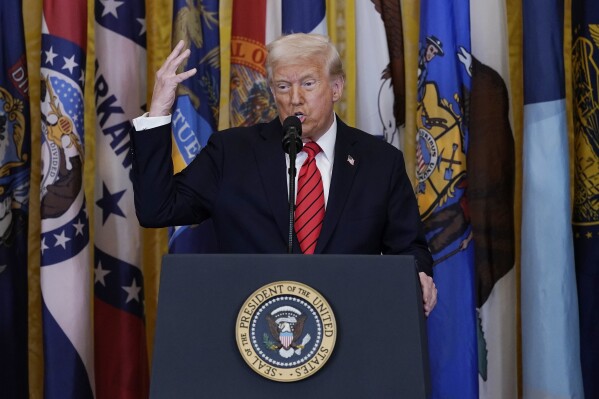
Recently, US President Donald Trump announced via social media that he would impose 25% tariffs on countries importing oil and gas from Venezuela. This decision immediately triggered widespread concern and mixed reactions from the international community. Trump said in the statement that Venezuela is "hostile" to the United States, so the United States decided to take the move to curb the Venezuelan government's economic activities. The new tariffs are expected to take effect on April 2.
Relations between the United States and Venezuela have been strained in recent years. The U.S. government has repeatedly accused the Venezuelan government of human rights abuses and restrictions on democracy, and has imposed a series of economic sanctions against it. In particular, after the re-election of Venezuelan President Nicolas Maduro, the United States strengthened its economic blockade of the country, trying to bring about regime change in Venezuela through pressure. Oil has long been a mainstay of Venezuela's economy, and the country's crude exports are heavily dependent on international markets. However, due to U.S. sanctions in recent years, Venezuela's options for oil exports have been greatly reduced. The decision by the United States to impose an additional 25% tariff on countries that buy Venezuelan oil and gas means that Venezuela's crude oil trade will face more severe challenges.
The Venezuelan government was quick to respond to the new U.S. measures. Venezuelan Foreign Minister Christopher Hill said on the 24th that the US move was "illegal" and "arbitrary". He stressed that the United States had no right to interfere with other countries' free trade and said Venezuela would discuss its response with international partners. The international community has also criticized the move, the United States sanctions policy, that this move not only affects the economic development of Venezuela, but also may have an impact on the international energy market.
From an economic perspective, U.S. tariffs on countries that import Venezuelan oil could affect the supply and demand balance in the global oil market. Venezuela is one of the world's major oil exporters, and if its crude oil exports are blocked, it may lead to fluctuations in international oil prices. In addition, some countries that depend on Venezuelan oil may experience varying degrees of economic impact.
At the diplomatic level, the US move could heighten tensions with some countries. For example, China and Russia have had deep cooperation with Venezuela in the energy sector in recent years, and this decision of the United States may have a certain impact on relevant enterprises in these countries, and even affect bilateral relations.
It is unclear whether the new U.S. measure will spark a broader trade dispute or diplomatic friction. Some analysts believe that Venezuela and its trading partners may find other ways to bypass U.S. sanctions, such as through non-dollar settlement methods. In addition, the policy is likely to be debated within the United States, especially given the complexity of the global oil market, where some industry players may raise concerns about the potential impact of new tariffs.
Overall, the new round of US sanctions on Venezuelan oil exports will undoubtedly have a profound impact on the global energy market and the international political landscape.

The Prime Minister's Office of Israel said Hamas attacked Israeli troops with explosive devices in Rafah City, southern Gaza on Wednesday (December 24).
The Prime Minister's Office of Israel said Hamas attacked I…
Fourteen countries including the United Kingdom, France and…
The US Department of Justice said on Wednesday (December 24…
The Japanese government has submitted a draft, planning to …
On December 25th local time, NVIDIA announced a technology …
Recently, BP agreed to sell a 65% stake in its Castrol lubr…